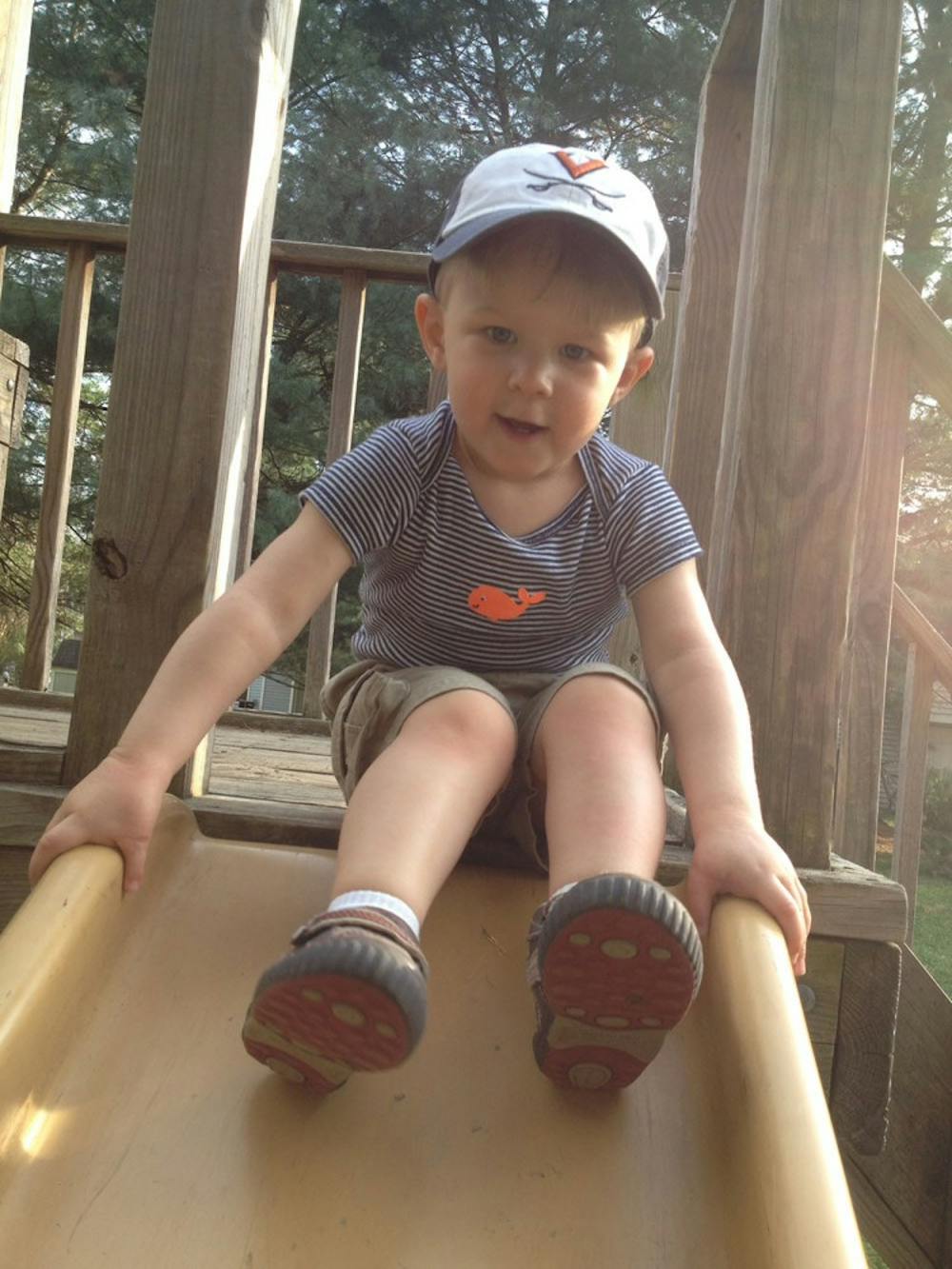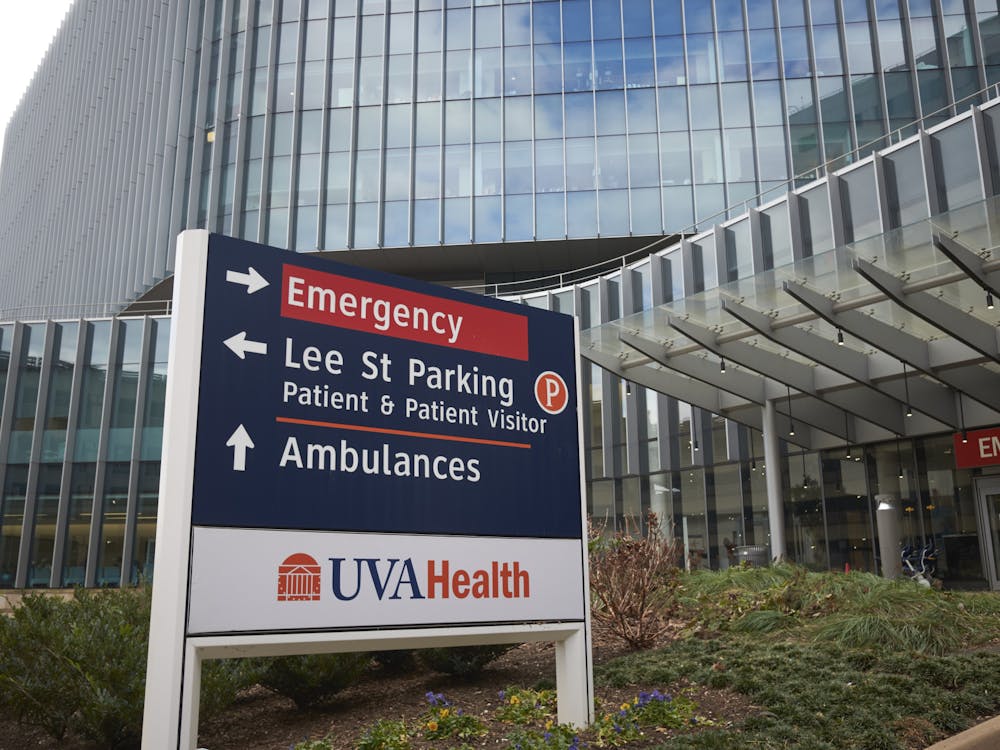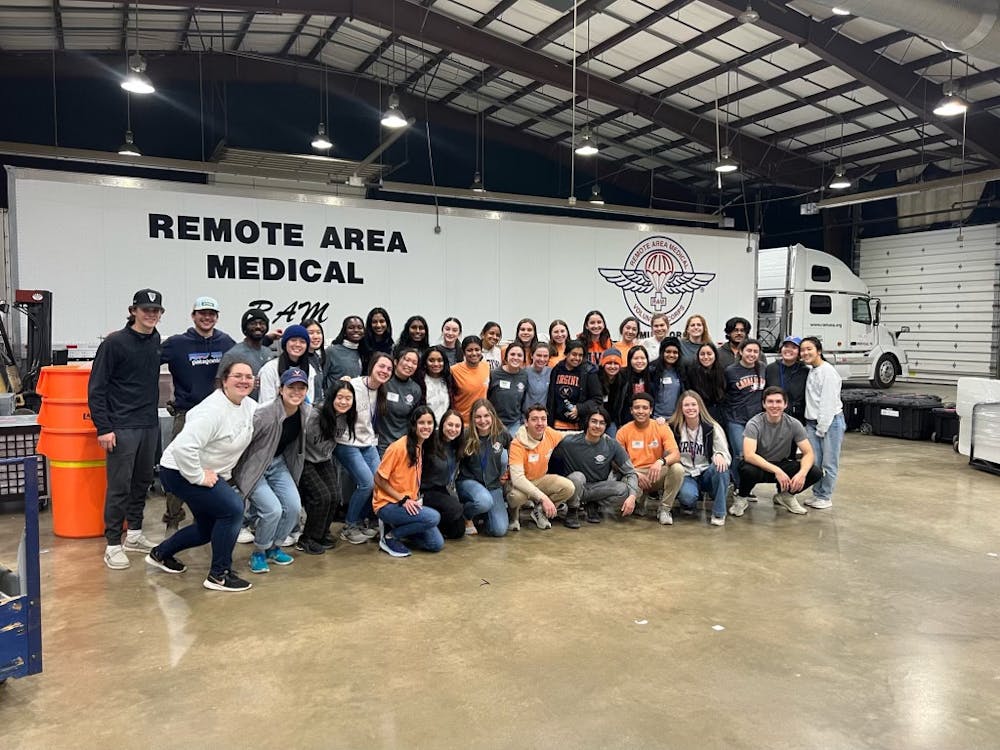Born without thumbs, two-year-old Connor Woodle now has full function of his hands after two operations performed by Dr. Bobby Chhabra, co-founder of the University of Virginia Hand Center.
“It’s very stressful when your child is born and you’re looking and literally counting fingers and toes and they don’t add up," Connor's father Jason Woodle said. "Then it sets in and you have to plan for the future.”
Connor’s operation, digit pollicization, involves substituting a functioning finger for a malfunctioning or missing thumb and recreating the tendons and muscles to create a functional thumb. Following the operation, occupational therapy in the recovery process allows the brain to fully adapt to the physiological and neurological changes.
“It’s a very uncommon procedure — fortunately most kids are not born with this particular genetic disorder," Chhabra said. "I perform one to two of these procedures a year at U.Va. ... It’s a complicated operation that requires attention to detail, but it’s very gratifying and gave Connor the ability to do things he otherwise would not be able to do.”
Chhabra said the innovative surgery comes with many risks, including compromised blood supply, scar sensitivity, infection and stunting of the new thumb’s growth.
The Woodles were referred to Dr. Chhabra — a University employee for 12 years — two weeks after Connor’s birth. After medical school and residency in the University Health System, Chhabra completed a fellowship training in hand and upper extremity, microvascular and congenital hand surgery at the Hand Center of San Antonio and Texas Scottish Rite Hospital.
“I was fascinated with how patient-centric the San Antonio Hand Center was and how efficient it was in providing care, so, in 2010 I helped found the University of Virginia Hand Center as a one-stop-shop for patients to help provide the highest level of care and expertise,” Chhabra said.
With a successful track record and more than 2,000 surgeries performed a year, the clinic is one of the busiest in the health system.
“I like that a lot of what we do is to treat injuries and problems with the goal of making people more functional and allowing them to return to activities that they enjoy doing,” Chhabra said. “I love the variety of the problems I treat and the anatomy and complexity of the hand and upper extremity. I’m privileged to perform surgeries like Connor’s.”
Connor’s first operation was performed when he was just more than one year old, and his subsequent operation was seven months later. Pollicization is time sensitive, because a child must be old enough to undergo anesthesia without any complications but young enough that the brain has not completely adapted to a lack of a thumb. Before the surgery, Connor had begun to adapt and was trying to awkwardly grasp objects between his index and middle finger.
"[Connor] was born in April, and the surgery wasn’t until [July], so we had to try to get him into gloves before that winter,” Woodle said. “Most kids wore mittens anyways at his age, so that was lucky for us."
Connor has made a full recovery and will continue therapy to fully adapt to using his new thumbs.
“We want to communicate to the parents of children that have physical abnormalities, congenital or not, that there are solutions available and there is hope,” Woodle said.
Correction: A previous version of this article incorrectly described the procedure Connor underwent. His two index fingers were moved into the thumb position.





